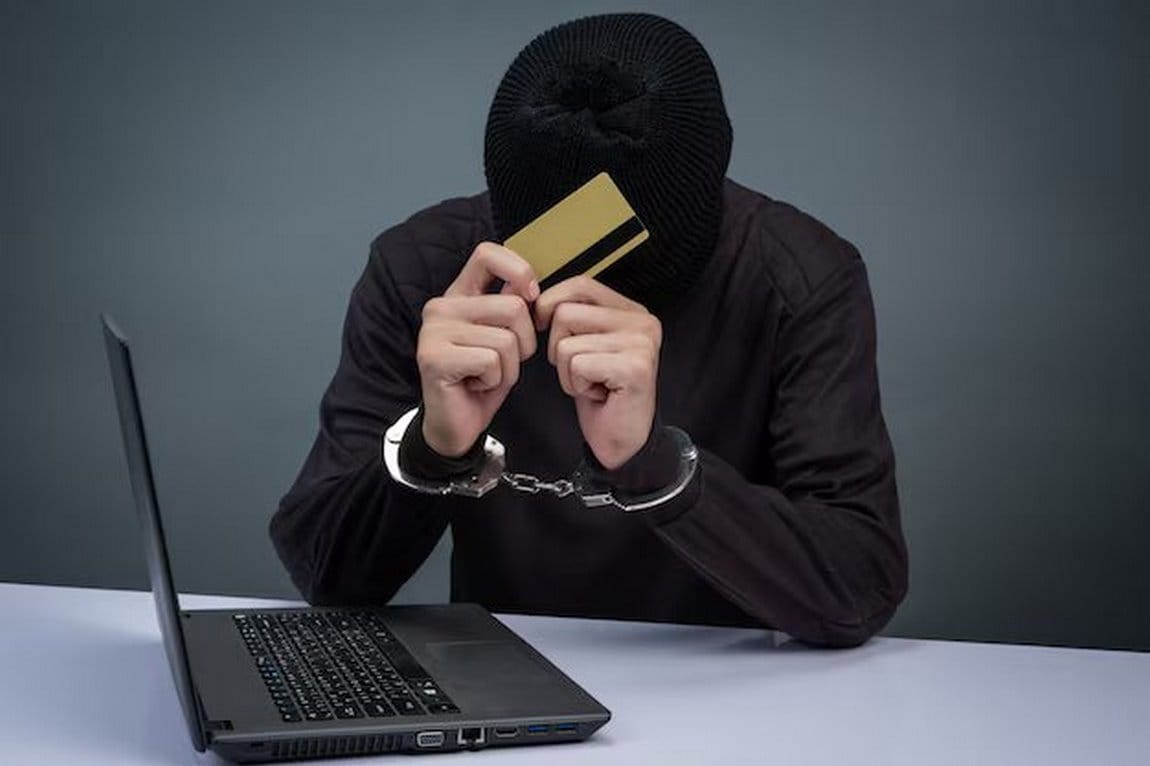In the digital age, credit card scams are evolving faster than ever. 2024 has seen a surge in sophisticated fraud tactics, putting your financial security at risk. This comprehensive guide will help you navigate the minefield of modern credit card scams and protect yourself from becoming a victim.
What’s New? Emerging Trends in Credit Card Scams This Year
Latest Scamming Techniques in 2024
Scammers are adopting cutting-edge technology and novel strategies to outsmart even the savviest consumers. From AI-driven phishing to cryptocurrency fraud, here’s what’s new in the world of credit card scams.
The Classic Scams that Are Still Around
Old-School Fraud Techniques Making a Comeback
Despite the rise of new scams, classic methods like phishing and skimming are still prevalent. These time-tested tricks continue to deceive unsuspecting victims.

Phishing Scams: How Fake Emails Could Empty Your Wallet
Understanding Phishing Scams
Phishing remains a prevalent threat, with scammers sending emails that appear legitimate but aim to steal your credit card details. Learn how to spot these deceptive messages before they lead to financial loss.
Smishing Scams: When Text Messages Turn Into Financial Traps
The Rise of Smishing
Smishing, or SMS phishing, uses text messages to trick you into revealing personal information. Discover how to recognize these deceptive texts and protect your financial data.
Vishing Scams: How Fraudsters Use the Phone to Steal Your Cash
The Threat of Vishing
Voice phishing (vishing) involves scammers calling you and pretending to be legitimate entities to gain access to your credit card information. Understand how to handle these calls to avoid falling victim.
Social Engineering: How Scammers Exploit Your Personal Information
The Psychology Behind Social Engineering
Scammers use social engineering to manipulate individuals into divulging sensitive information. Learn how they exploit personal details and how to safeguard yourself from these tactics.
Online Shopping Scams: The Dangers Lurking on E-Commerce Sites
Protecting Yourself While Shopping Online
Online shopping scams involve fraudulent e-commerce sites and deals that seem too good to be true. Discover tips to ensure that your online purchases are safe and secure.
Card Not Present Fraud: How Virtual Transactions Can Go Wrong
The Risks of Card Not Present Transactions
With the rise of online transactions, card not present (CNP) fraud has become more common. Learn how to protect yourself when making virtual purchases to avoid unauthorized charges.
Skimming Devices: How Your Card Data Gets Swiped in Seconds
Understanding Credit Card Skimming
Skimming devices can capture your card information without your knowledge. Find out how these devices work and how to detect and avoid them.
Data Breaches: When Big Companies Lose Your Credit Information
The Impact of Data Breaches
Data breaches expose your credit card information through compromised databases. Understand the risks involved and steps to take if your data is affected by a breach.
Identity Theft: The Nightmare of Having Your Credit Card Information Stolen
Dealing with Identity Theft
Identity theft occurs when scammers use your stolen credit card information to commit fraud. Learn the steps to take if you become a victim and how to prevent identity theft.
The Role of New Technologies in Scamming: AI and Beyond
How Technology Fuels Modern Scams
New technologies, including artificial intelligence and blockchain, are used by scammers to create more sophisticated schemes. Discover how these technologies impact credit card fraud.
How AI is Being Used by Scammers: A High-Tech Heist
Artificial Intelligence enhances scammers’ ability to execute high-tech heists. Explore how AI is used to craft convincing phishing attacks and other fraudulent activities.
Blockchain and Cryptocurrency Scams: The New Frontier of Financial Fraud
Blockchain and cryptocurrency offer new opportunities—and new risks. Learn about common scams in the cryptocurrency space and how to protect your investments.
Protecting Yourself: Practical Steps to Keep Your Credit Card Safe
Essential Credit Card Security Measures
Implementing effective security measures is crucial to protect your credit card information. Here are practical steps to ensure your financial safety.
Regular Monitoring: The Importance of Checking Your Statements
Regularly reviewing your credit card statements helps detect unauthorized transactions early. Learn how to keep track of your statements to avoid potential fraud.
Setting Up Alerts: How to Get Notified of Suspicious Activity
Setting up alerts for transactions and account changes can help you stay informed about suspicious activity. Discover how to configure alerts to safeguard your credit card.
Using Strong Passwords and Two-Factor Authentication: A Simple but Effective Shield
Using strong, unique passwords and enabling two-factor authentication adds layers of security to your accounts. Learn how these practices can protect you from fraud.
Keeping Your Devices Secure: The Role of Antivirus and Anti-Malware Software
Antivirus and anti-malware software are crucial for protecting your devices from cyber threats. Explore how to keep your devices secure and up-to-date.
Educating Yourself and Others: Staying Informed to Stay Safe
The Importance of Fraud Education
Staying informed about the latest scams and educating those around you can help prevent fraud. Learn how to share knowledge and enhance community vigilance.
What to Do If You’ve Been Scammed: Steps to Take Immediately
Immediate Actions After a Scam
If you’ve fallen victim to a scam, acting quickly can mitigate damage. Follow these steps to address fraudulent activity and protect your financial information.
Reporting Fraud: How to Alert Your Bank and Authorities
Report fraudulent activity to your bank and relevant authorities to seek resolution and assist in tracking down the fraudsters. Learn the proper channels for reporting fraud.
Preventative Measures: How to Avoid Future Scams
Implementing preventative measures can help you avoid future scams. Discover tips and strategies to enhance your financial security and stay ahead of fraudsters.
BOTTOM LINE
Maintaining Financial Security
In a world rife with credit card scams, staying vigilant is essential. By understanding the risks and implementing protective measures, you can safeguard your financial well-being.
Frequently Asked Questions (FAQs)
Can someone steal money from your credit card?
Yes, someone can steal money from your credit card through various methods like unauthorized transactions, card-not-present fraud, or identity theft. It’s important to monitor your statements regularly and report any suspicious activity immediately.
How do you stop a scammer using your credit card?
To stop a scammer using your credit card, contact your bank or credit card issuer right away to report the fraud. They can freeze your account, issue a new card, and help you dispute any unauthorized charges.
Can hackers see my credit card info?
Yes, hackers can potentially see your credit card info if they gain access to databases, phishing scams, or malware on your device. Protect your information by using strong passwords, antivirus software, and being cautious of suspicious communications.
Can I get money back on a credit card if scammed?
Yes, you can often get money back on your credit card if you’re scammed. Contact your credit card issuer to report the fraudulent charges and follow their procedures for disputing the transactions and potentially receiving a refund.
How to turn in a credit card scammer?
To turn in a credit card scammer, report the fraud to your credit card issuer and local law enforcement. You can also file a complaint with the Federal Trade Commission (FTC) or other relevant consumer protection agencies.
Do banks refund scammed money?
Banks often refund scammed money if you report the fraud promptly and follow their procedures for disputing unauthorized transactions. The specifics can vary depending on the bank’s policies and the nature of the scam.
Can a scammer get a credit card in my name?
Yes, scammers can potentially get a credit card in your name through identity theft. They may use stolen personal information to apply for and obtain a credit card issued in your name.
How long is credit card scamming?
Credit card scamming can vary in duration depending on the scammer’s methods and the effectiveness of their tactics. Some scams are carried out quickly, while others may take months to unfold as scammers use stolen information.
What happens if you give your card details to a scammer?
If you give your card details to a scammer, they can potentially make unauthorized transactions, commit fraud, or steal your identity. It’s crucial to report the incident to your credit card issuer immediately and take steps to secure your accounts.
How did my card get scammed?
Your card might get scammed through methods like phishing, skimming, data breaches, or malware. Understanding how the scam occurred can help you prevent future incidents and secure your financial information.
What if I accidentally gave credit card info to a scammer?
If you accidentally gave your credit card info to a scammer, contact your credit card issuer immediately to report the incident. They can help you take necessary actions such as freezing your account, issuing a new card, and disputing unauthorized charges.







